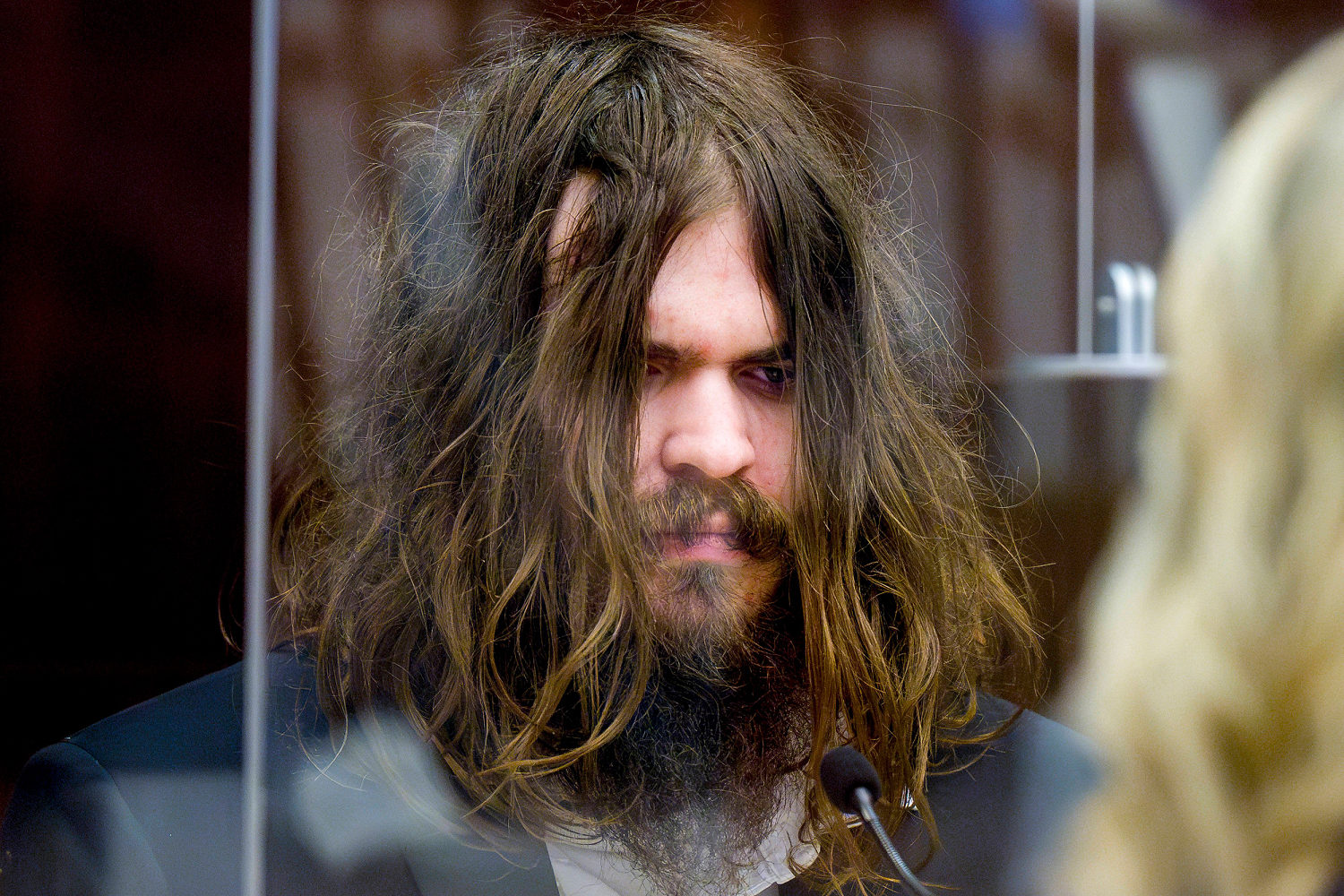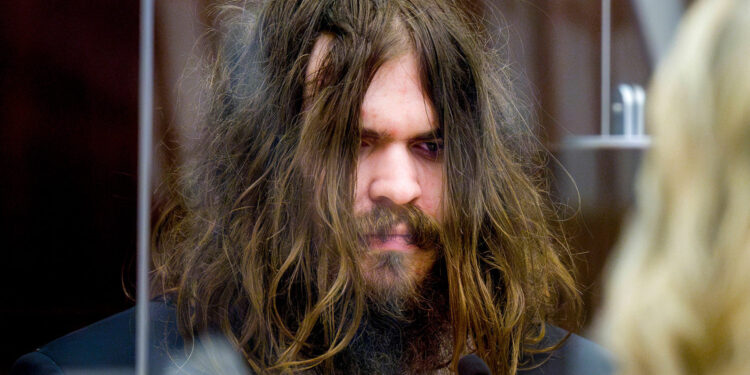
SANTA ANA, Calif. — A California man was convicted of murder with a hate crime enhancement Wednesday for the 2018 stabbing death of a gay University of Pennsylvania student.
Samuel Woodward, 26, was found guilty of first-degree murder plus the enhancement in the killing of Blaze Bernstein, a gay, Jewish college sophomore who was home visiting his family in Southern California on winter break when he went missing. Authorities scoured the area for him and found his body a week later in a shallow grave at a nearby park.
The question during the monthslong trial was not whether Woodward killed Bernstein but why, and the circumstances under which it happened.
During closing arguments, prosecutor Jennifer Walker emphasized Woodward’s affiliation with a violent, anti-gay, antisemitic group known as Atomwaffen Division.
“This is a person focused on hate,” Walker said. “Not following, not being led by, influenced by, victimized by Atomwaffen — seeking it out.”
With the hate crime enhancement, Woodward could face a sentence of life without parole.
Ken Morrison, his attorney, sought at trial to show his client did not plan to kill Bernstein and did not hate anyone, in an effort for a conviction to be on a lesser charge such as second-degree murder or manslaughter.
Morrison, who plans to appeal after sentencing, said the judge made some key rulings that denied “jurors the ability to consider evidence critical to a fair trial.”
Woodward and Bernstein previously attended the same high school in Orange County and connected via a dating app in the months before the attack, according to testimony at trial. Woodward said he picked up Bernstein and went to a nearby park, and that he repeatedly stabbed Bernstein after trying to grab a cellphone he feared had been used to photograph him.
Prosecutors said Woodward joined Atomwaffen Division and repeatedly targeted gay men online by reaching out to them and then abruptly breaking off contact while keeping a hateful, profanity-laced journal of his actions. They said Woodward showed an interest in carrying out violent acts in the weeks before the killing and reached out to Bernstein online.
Ken Morrison, Woodward’s attorney, told jurors his client did not plan to kill anyone and did not hate Bernstein. He said Woodward faced challenges in his personal relationships due to a long-undiagnosed autism spectrum disorder and was confused about his sexuality after growing up in a politically conservative and devout Catholic family where his father openly criticized homosexuality.
The case took years to go to trial after questions arose about Woodward’s mental state and following multiple changes in defense attorneys. Woodward was deemed competent to stand trial in late 2022.
Bernstein disappeared in January 2018 after he went out at night with Woodward to a park in Lake Forest, about 45 miles southeast of Los Angeles. After Bernstein missed a dentist appointment the next day, his parents found his glasses, wallet and credit cards in his bedroom and tried reaching him, but he did not respond to texts or calls.
Authorities launched an exhaustive search and said Bernstein’s family scoured his social media and saw he had communicated with Woodward on Snapchat. Authorities said Woodward told the family that Bernstein had gone off to meet a friend in the park that night and did not return.
Days later Bernstein’s body was found in the shallow grave. He had been repeatedly stabbed in the face and neck.
Authorities said they searched Woodward’s family home in Newport Beach and found a folding knife with a bloodied blade in his room. They also found a black Atomwaffen mask with traces of blood and a host of anti-gay, antisemitic and hate group materials, prosecutors said.







